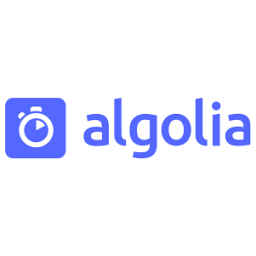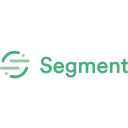Bloomreach vs Algolia: Which search and AI solution is right for your business?
- 01Bloomreach vs Algolia: overview
- 02What's the difference between Bloomreach and Algolia?
- 03Bloomreach pros and cons
- 04Algolia pros and cons
- 05Bloomreach compared to Algolia
- 06Algolia compared to Bloomreach
- 07Features comparison
- 08Bloomreach vs Algolia: Which is the best for your business?
- 09Promotions on E Commerce software
- 10Alternatives to Bloomreach & Algolia
Save up to $10,000 on Algolia
Save up to $10,000 on Algolia
Enhancing the search and personalization capabilities of your e-commerce platform can significantly boost customer engagement and drive revenue growth. However, building and managing these features manually is a complex and resource-intensive task. That's where AI-driven search and personalization platforms come into play. These solutions streamline the process, offering advanced tools to improve customer experience and search relevance.
With several options on the market, selecting the right platform for your business can be overwhelming. In this article, we compare two leading solutions—Bloomreach vs Algolia. By evaluating their core features, pricing models, and key differences, you’ll gain insights to help determine which platform best aligns with your business needs.
Bloomreach vs Algolia: overview
Bloomreach and Algolia are two prominent contenders in the world of AI-driven search and personalization for e-commerce platforms, each offering a unique set of features tailored to meet the needs of diverse businesses.
Bloomreach is renowned for its holistic approach to digital experience management, combining AI-powered search with content, product discovery, and marketing automation. Its focus on e-commerce businesses enables a seamless integration of personalized search results, relevant content, and tailored product recommendations. On the other hand, Algolia is a highly specialized search-as-a-service platform known for its speed and accuracy in delivering search results. It is widely praised for its developer-friendly nature, offering powerful APIs that allow for extensive customization of search experiences.
Now, let's dive deeper into the Bloomreach vs. Algolia comparison to help you make an informed decision on which platform aligns best with your business’s search and personalization needs.
What's the difference between Bloomreach and Algolia?
Bloomreach and Algolia are leading platforms for enhancing search and personalization capabilities, especially within e-commerce and digital experiences. Both platforms offer powerful AI-driven features, but they differ in their core focus and pricing models, which are essential to consider when selecting the right solution for your business.
The first major difference lies in the scope of their offerings. Bloomreach is an all-in-one digital experience platform, combining not just search but also content management, product discovery, and marketing automation. It provides businesses with tools for creating personalized customer journeys across various digital touchpoints, making it ideal for enterprises looking for a comprehensive solution to manage their e-commerce and digital marketing strategies.
Algolia, in contrast, is a specialized search-as-a-service platform that excels in delivering fast, accurate, and customizable search results. While it offers personalization and AI features, its primary focus is search performance. Algolia's real-time indexing and high configurability make it a top choice for businesses that require a robust search experience but may not need an all-encompassing digital experience platform like Bloomreach.
The second key difference is their pricing models. Bloomreach generally targets mid-market to enterprise businesses, offering custom pricing that scales with the complexity and size of the operation. It is known for its enterprise-level solutions that may be overkill for smaller businesses. Algolia, on the other hand, offers more transparent and flexible pricing with pay-as-you-go options, making it a better fit for startups or smaller businesses that prioritize budget control.
Lastly, integration capabilities differ between the two. Bloomreach integrates deeply with enterprise systems, offering end-to-end solutions, while Algolia provides more developer-centric APIs for businesses seeking to customize their search experiences.
Bloomreach pros and cons
What are the advantages of Bloomreach?
- Comprehensive digital experience platform: Bloomreach combines search, content management, and marketing automation in one platform, providing businesses with an end-to-end solution for optimizing their e-commerce and digital experiences.
- AI-powered personalization: It excels in delivering personalized customer journeys by using AI to tailor content, product recommendations, and search results to individual user behavior, driving better engagement and conversions.
- Advanced analytics and insights: Bloomreach offers robust analytics tools that help businesses gain insights into customer behavior and website performance, enabling data-driven decisions and optimizations.
- Enterprise-level integrations: It integrates seamlessly with many enterprise systems (e.g., ERP, CRM, e-commerce platforms) allowing for a unified tech stack across large organizations, which is crucial for omnichannel experiences.
- Scalability: The platform is highly scalable, making it suitable for businesses that anticipate growth and require a solution that can handle increasing volumes of data and traffic without performance issues.
What are the disadvantages of Bloomreach?
- Cost: Bloomreach is typically geared toward mid-market and enterprise businesses, which can make it prohibitively expensive for small businesses or startups. Pricing is not transparent and usually requires a custom quote.
- Complex setup and integration: Due to its comprehensive nature, setting up and integrating Bloomreach into an existing tech stack can be complex and time-consuming, requiring significant resources and technical expertise.
- Steep learning curve: For teams without prior experience in digital experience management platforms, Bloomreach's wide range of features can be overwhelming, resulting in a steeper learning curve compared to more specialized platforms.
- Limited flexibility for smaller businesses: While its capabilities are extensive, Bloomreach might be overkill for smaller companies that don’t need full-scale content management and marketing automation features. Its focus on large enterprises may limit its flexibility for smaller use cases.
- Dependence on IT and development teams: Due to its complexity and customization potential, Bloomreach often requires continuous support from IT and development teams to fully leverage its capabilities, which may strain smaller organizations with limited tech resources.
Algolia pros and cons
What are the advantages of Algolia?
- High-speed, accurate search: Algolia is renowned for its incredibly fast and accurate search capabilities. It delivers instant search results, even for complex queries, improving user experience and boosting engagement on websites and apps.
- Real-time indexing: Algolia supports real-time indexing, ensuring that new content or product updates are immediately reflected in search results. This is particularly valuable for businesses with frequently changing inventories or content.
- Developer-friendly customization: Algolia offers powerful APIs and tools for developers, enabling extensive customization of the search experience. This allows businesses to tailor search functionalities to their specific requirements.
- Scalability: Algolia is highly scalable and performs well regardless of the size of your data. It’s suitable for startups and enterprises alike, adapting to the growth of your business without compromising on performance.
- Multi-language support: Algolia supports multiple languages and provides advanced features for handling international search, making it an ideal choice for global businesses with multilingual customers.
What are the disadvantages of Algolia?
- Limited beyond search: Unlike platforms like Bloomreach, Algolia is primarily focused on search functionality. While it excels in this area, it lacks built-in features for content management or marketing automation, which may require additional tools for a complete solution.
- Complexity for non-developers: Algolia’s customization options heavily depend on developer expertise. For non-technical users or teams without strong development resources, setting up and maintaining Algolia might be challenging.
- Pricing model: Algolia’s pay-as-you-go pricing can become expensive for businesses with high search volumes. While the platform is flexible, costs may escalate as your data and traffic grow, making it harder to manage for smaller businesses.
- Learning curve: Despite its power, Algolia has a learning curve, especially for teams unfamiliar with API-driven services. The need to configure and fine-tune search parameters may require additional time and training.
- Lack of built-in analytics: Algolia’s native analytics tools are not as advanced as some other platforms, meaning businesses may need to integrate third-party analytics solutions to get deeper insights into search performance and user behavior.
Compare Algolia to other tools
Bloomreach compared to Algolia
Bloomreach and Algolia both offer advanced search solutions, but they serve different purposes. Bloomreach is an all-in-one digital experience platform, combining search with content management, marketing automation, and personalization, making it ideal for enterprises seeking a comprehensive solution for customer engagement.
In contrast, Algolia focuses specifically on providing high-speed, customizable search experiences with real-time indexing, offering a highly performant and developer-friendly platform. While Bloomreach is well-suited for larger businesses with complex needs across multiple channels, Algolia excels in scenarios requiring fast, accurate, and scalable search functionality without the broader marketing and content features.
Is Bloomreach better than Algolia?
Whether Bloomreach is better than Algolia depends on the specific needs of your business. Bloomreach excels as a comprehensive digital experience platform, offering robust tools for content management, personalization, and marketing automation alongside its search capabilities, making it ideal for businesses seeking an all-in-one solution.
However, if your primary focus is delivering lightning-fast, highly customizable search experiences, Algolia may be the better choice. Algolia's strength lies in its real-time indexing and performance-driven infrastructure, ideal for companies that prioritize search accuracy and speed without needing the additional features Bloomreach provides.
What is Bloomreach best used for?
Bloomreach is best used for creating personalized digital experiences across e-commerce and enterprise websites. It integrates AI-powered search, product discovery, content management, and marketing automation into a unified platform, making it ideal for businesses looking to enhance customer engagement and drive conversions.
Bloomreach excels at delivering tailored recommendations, optimizing search relevance, and managing multi-channel customer journeys. Its robust analytics tools provide deep insights into user behavior, helping companies continuously optimize their digital strategies. Bloomreach is particularly well-suited for large enterprises with complex product catalogs and a need for comprehensive content and commerce management.
Can Bloomreach replace Algolia?
Bloomreach and Algolia serve different purposes, so whether Bloomreach can replace Algolia depends on your specific needs. Bloomreach is a comprehensive digital experience platform that includes AI-driven search, content management, and marketing automation, making it more versatile for businesses seeking an all-in-one solution.
Algolia, on the other hand, specializes in providing fast, highly customizable search functionality with real-time indexing. If your primary focus is on delivering a high-performance search experience, Algolia excels in that area. However, for businesses that need a broader platform to manage content, personalization, and search together, Bloomreach could potentially replace Algolia.
Is Bloomreach cheaper than Algolia?
Whether Bloomreach is cheaper than Algolia depends on the specific use case, business size, and the features required. Bloomreach typically caters to mid-market and enterprise-level businesses, offering comprehensive solutions that include AI-driven search, content management, and marketing automation, with pricing often reflecting its all-in-one nature. Costs are generally custom-quoted, which can make Bloomreach more expensive, particularly for smaller companies.
Algolia, on the other hand, offers more transparent, usage-based pricing focused solely on search functionality. For businesses requiring only search capabilities, Algolia may be more cost-effective. However, for broader digital experience needs, Bloomreach’s higher cost could offer more value.
Is there a better E Commerce software than Bloomreach?
When considering a digital experience platform like Bloomreach, it's essential to assess whether an alternative might better suit your business’s unique needs.
Several notable alternatives to Bloomreach in the search, personalization, and content management space include Algolia, Adobe Experience Manager, MoEngage, and Sitecore. Each platform offers distinct strengths based on your specific requirements, such as AI-driven search, content management, marketing automation, or personalization.
The best choice depends on your organization’s priorities—whether you need advanced search capabilities, extensive customization, or seamless multi-channel customer experiences. While Bloomreach offers a comprehensive all-in-one solution, other platforms may provide more specialized features, better scalability, or different pricing structures, aligning more closely with your goals.
Algolia compared to Bloomreach
Algolia and Bloomreach offer different strengths in the realm of search and digital experiences. Algolia is highly specialized in providing fast, accurate, and customizable search functionality, making it ideal for businesses that prioritize performance and search-specific optimization. It is developer-friendly with powerful APIs, allowing for extensive customization.
Bloomreach, on the other hand, is a more comprehensive platform that combines search, content management, and marketing automation into a unified solution. It is best suited for businesses looking to manage personalized customer journeys across multiple channels. While Algolia excels in search, Bloomreach provides a broader digital experience platform for enterprises.
Is Algolia better than Bloomreach?
Whether Algolia is better than Bloomreach depends on the specific needs of your business. Algolia is the superior choice if search performance is your top priority, as it offers unmatched speed, accuracy, and real-time indexing. Its developer-friendly API enables deep customization, making it ideal for businesses that require highly optimized search functionality.
However, for businesses that need more than just search—such as content management, marketing automation, and personalization—Bloomreach offers a more comprehensive solution. Algolia excels in fast, scalable search experiences, while Bloomreach covers a broader range of digital experience needs, making each better suited for different use cases.
What is Algolia best used for?
Algolia is best used for delivering fast, accurate, and highly customizable search experiences. It is ideal for businesses that prioritize search performance, offering real-time indexing and instant search results, even for complex queries. Algolia is particularly suited for e-commerce, SaaS, and content-heavy platforms where users need quick, relevant search results. Its developer-friendly APIs allow extensive customization, enabling businesses to create tailored search experiences.
Additionally, Algolia excels in handling large datasets and scaling efficiently, making it a top choice for companies that require both high-performance search functionality and flexibility to meet specific business needs.
Can Algolia replace Bloomreach?
Algolia and Bloomreach serve different purposes, so Algolia cannot fully replace Bloomreach. Algolia specializes in delivering fast, customizable search functionality, excelling in real-time indexing and high-performance search experiences. However, Bloomreach offers a broader digital experience platform that combines search, content management, personalization, and marketing automation, making it ideal for businesses that require an all-in-one solution.
While Algolia can provide superior search capabilities, it lacks the comprehensive tools for managing content and customer journeys that Bloomreach offers. For businesses focused solely on search, Algolia is a strong option, but for complete digital experience management, Bloomreach is more suitable.
Is Algolia cheaper than Bloomreach?
Algolia’s pricing is generally cheaper than Bloomreach, especially for businesses that only require search functionality. Algolia uses a transparent, usage-based pricing model that allows businesses to pay according to the volume of search queries and indexing they need, making it more affordable for smaller companies or those focused solely on search optimization.
In contrast, Bloomreach typically targets mid-market to enterprise-level businesses with custom pricing that reflects its broader digital experience platform, including content management, personalization, and marketing automation. For companies needing an all-in-one solution, Bloomreach may offer more value, but for pure search needs, Algolia is often the more cost-effective choice.
Is there a better Web Development software than Algolia?
When considering alternatives to Algolia, it’s important to assess whether another search platform might better suit your unique business requirements.
Some key competitors to Algolia in the search and personalization space include ElasticSearch, Swiftype, Coveo, Yext, and Bloomreach. Each offers its own strengths based on your specific use cases, such as enterprise-level search needs, AI-powered personalization, or ease of integration with existing systems.
The best search solution depends on your goals, such as search speed, customization, scalability, and the complexity of your content. While Algolia excels in speed and real-time indexing, other platforms may offer broader features like advanced analytics, AI, or deeper content management capabilities. Evaluating these options based on your business priorities will help determine the most suitable platform.
$10,000 in credits for 1 year on Algolia
Get $10,000 in credits for 1 year on Algolia and up to $10,000 savings with Secret.
Features comparison
Bloomreach Leads Algolia in Integration Capabilities Across Enterprise Systems
When it comes to integration possibilities, Bloomreach stands ahead of Algolia. Bloomreach excels with its extensive capacity to integrate seamlessly with a wide range of systems, including major eCommerce platforms like Shopify and Magento, CMSs such as Adobe Experience Manager and WordPress, and marketing automation tools like Marketo and HubSpot. This versatility provides businesses with a holistic solution, allowing them to unify their operations and streamline content, product discovery, and customer data across all channels.
While Algolia supports integrations, including popular development frameworks like React and Vue.js, and eCommerce platforms like Shopify and Salesforce Commerce Cloud, its offerings are more search-focused. Bloomreach’s broader integration landscape makes it the more versatile choice for enterprises seeking an all-in-one platform to connect different areas of their business effortlessly.
Bloomreach Excels Over Algolia in Real-Time Personalization for E-Commerce
Bloomreach leads the way in real-time personalization, leveraging live customer behavior and product data to create highly tailored shopping experiences. For instance, as customers browse an e-commerce site, Bloomreach dynamically adjusts product recommendations, search results, and content to match individual preferences and behaviors, ensuring each interaction is relevant and engaging. This is particularly effective for businesses focused on enhancing customer engagement and driving conversions.
While Algolia offers robust personalized search features, it doesn't emphasize real-time personalization in the same way. Algolia excels in delivering fast, accurate search experiences but lacks the depth of real-time adjustments based on live consumer data, giving Bloomreach a clear advantage in this area.
Algolia Excels Over Bloomreach in Delivering Instant Search Results
Algolia’s search infrastructure is designed for speed, delivering search results in milliseconds, ensuring users experience minimal lag and immediate feedback as they interact with a site or app. This speed is critical for high-traffic platforms or businesses where rapid response times significantly impact user experience and conversion rates. Algolia’s real-time indexing and search-as-you-type feature provide instant, accurate results, making it ideal for performance-focused businesses.
While Bloomreach also offers advanced product discovery and search capabilities, it places more emphasis on personalization and overall experience than pure search speed. For businesses prioritizing fast, seamless search, Algolia clearly leads in this aspect with its unparalleled performance.
Both Bloomreach and Algolia Harness AI for Enhanced User Experience, Each in Unique Ways
Both Bloomreach and Algolia employ AI to improve the user experience, but they do so in distinct ways that align with their core strengths. Bloomreach utilizes commerce-centered AI to personalize customer journeys by recommending products, tailoring content, and streamlining workflows based on real-time customer behavior. For example, Bloomreach automatically adjusts product recommendations and promotions, ensuring a personalized shopping experience that drives engagement and conversions.
Algolia, on the other hand, focuses its AI on search relevance, analyzing user behavior to deliver more accurate and meaningful search results. Its AI-driven engine continuously learns from user interactions, refining its search algorithms for better precision. Both platforms offer powerful AI tools, but Bloomreach emphasizes personalization across the entire customer journey, while Algolia enhances search functionality and relevance.
Algolia Outshines Bloomreach in Scalability for High-Traffic, Growing Businesses
Algolia’s infrastructure is purpose-built to handle high traffic volumes and scales effortlessly as a business grows, ensuring lightning-fast search performance even during peak times. For example, large e-commerce sites with millions of products and users can rely on Algolia’s real-time indexing and distributed search architecture to maintain consistent speed and accuracy under heavy loads. This makes it particularly appealing to businesses experiencing rapid growth or seasonal traffic spikes.
While Bloomreach also supports business expansion with its robust platform, it doesn’t emphasize scalability to the same degree as Algolia. Algolia’s proven ability to scale with ease makes it the preferred option for businesses prioritizing performance during high growth periods.
Algolia Outshines Bloomreach in Ease-of-Use for Developers and Marketers
When it comes to ease of use, both Bloomreach and Algolia bring valuable features, but Algolia takes the lead in terms of user-friendliness. Algolia’s interface is designed with a strong emphasis on simplicity and intuitiveness, allowing both developers and non-technical users to quickly grasp its functionality. For example, Algolia’s powerful dashboard enables users to implement and configure search experiences with minimal setup, making it ideal for businesses that need to move fast without extensive onboarding.
Bloomreach, while feature-rich, offers a more complex platform that includes search, content management, and marketing automation. This comprehensive nature can result in a steeper learning curve. Users may require additional time and training to fully leverage its diverse capabilities. While Bloomreach excels in customization, it may not be as immediately approachable for beginners as Algolia is.
Bloomreach Excels Over Algolia with Comprehensive Headless CMS for Content Management
Bloomreach’s platform offers a robust headless CMS, allowing businesses to effortlessly create, manage, and personalize content across various digital touchpoints. This headless architecture provides flexibility for developers and marketers to build rich, personalized content experiences across web, mobile, and other digital platforms without being tied to a specific front-end. For example, e-commerce sites can dynamically deliver personalized product pages, blogs, or landing pages based on user behavior.
In contrast, Algolia provides a highly customizable search experience with features like filters, spelling tolerance, and synonyms, enhancing search relevance. However, it lacks built-in content management capabilities, which gives Bloomreach a clear advantage for businesses that need a unified content management and personalization system.
Subscribe to our newsletters.
No FOMO here. Stay up-to-date on all the latest deals and news with our monthly newsletter straight to your inbox like 110,000+ entrepreneurs (+ Get 10% off on on our Premium Membership!)
Bloomreach vs Algolia: Which is the best for your business?
Bloomreach is the best tool for you if:
- You need an all-in-one digital experience platform that combines AI-powered search, content management, and marketing automation to drive personalized customer journeys across multiple touchpoints.
- Your business prioritizes real-time personalization, leveraging live customer and product data to dynamically tailor experiences, recommendations, and content based on user behavior for higher engagement and conversions.
- You are looking for a platform that integrates seamlessly with major eCommerce systems, CMSs, and marketing tools, allowing you to manage your entire digital ecosystem from one centralized platform.
- You require a solution that provides robust analytics and insights to continuously optimize customer experiences, marketing strategies, and product discovery based on comprehensive data.
- Your company needs to support enterprise-level scalability with the ability to manage large volumes of content, products, and customer data while maintaining high performance across digital channels.
Algolia is the best tool for you if:
- You prioritize fast, real-time search performance, ensuring that users receive instant, accurate results, even in high-traffic environments, making it ideal for e-commerce and content-heavy platforms.
- You require a developer-friendly platform that offers highly customizable APIs, enabling your team to build tailored search experiences that meet your specific business and user needs.
- Your business handles large datasets and needs a scalable search solution that can effortlessly manage increasing search volumes as your company grows, without compromising speed or performance.
- You need a search engine that provides advanced features like spelling tolerance, synonyms, and filters to ensure users find relevant results, improving search accuracy and user satisfaction.
- You’re focused on enhancing search relevance through AI, leveraging machine learning to continuously improve the accuracy of search results based on user interactions and behavior patterns.
Alternatives to Bloomreach & Algolia
Promotions on E Commerce software
Start saving on the best SaaS with Secret.
Secret has already helped tens of thousands of startups save millions on the best SaaS like Bloomreach, Algolia & many more. Join Secret now to buy software the smart way.









